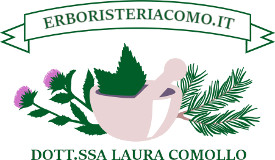Neuropathic pain: what it is, what are the symptoms, how to fight it with our natural remedies without side effects.
Pain is a complex biological, sensorial, emotional, rational process, but it also represents an element of our life that can at the same time be a useful friend and our greatest enemy.
There are various types of pain:
- nociceptive pain,
- anti-inflammatory pain (joint pain, contusion pains and contractures),
- neuropathic pain.
The main feature that differentiates lies in the different relationship that in each of them there is between injury and pain. Nociceptive pain is brief in response to a simple insult, inflammatory pain is persistent as a result of inflammation, and neuropathic pain is abnormal resulting from nerve or brain damage.
Neuropathic pain: what is it?
Neuropathic pain is always caused by a pathology of the nervous system. The term “neuropathic” indicates that the nervous system is damaged. For a variety of reasons, such as trauma, neurodegenerative disease or metabolic alterations, the peripheral and central nervous system mechanisms we use to perceive normal pain are altered and the relationship between injury and pain is lost.
Pain is perceived in the absence of injury or is triggered by stimuli that normally do not generate it (eg heat or cold). Neuropathic pain presents with a particularly unpleasant feature. It is similar to a burn or an electric shock and is very difficult to manage, it is abnormal and certainly clinically relevant.
Neuropathic pain: characteristics
Unlike traditional pain, which originates from physical damage or an inflammatory process, neuropathic pain does not travel the physiological path of pain transmission, but originates within the nervous system. For this reason, neuropathic pain is a totally pathological pain that has no physiological significance. In fact, in neuropathic pain there is not the same type of nerve conduction as the pain sensation, as the damage that is created is at the level of the nerves themselves. Furthermore, the prognosis is worse: not only major nerve injuries are more likely to cause chronic (persistent) pain than non-nervous tissue injuries, but also neuropathic pain tends to be more refractory to conventional analgesics, such as non-steroidal anti-inflammatory drugs and opioids.
Neuropathic pain: causes
The origin of neuropathic pain can be identified at the level of:
- central nervous system (central neuralgia): the causes can be for example stroke, tumors, diseases of the nervous system such as multiple sclerosis;
- peripheral nervous system (peripheral neuralgia): examples are phantom limb syndrome, post-herpetic pain (eg “shingles”), trigeminal neuralgia, diabetic neuropathy and the various neuralgia caused from nerve trauma or compression (such as carpal tunnel syndrome).
Neuropathic pain can also be caused by:
- physical damage to the nerves caused for example by an accident,
- complications of surgery,
- muscle or joint compression (sciatica, carpal tunnel, trigeminal neuralgia),
- metabolic factors (60-70% of people with diabetes develop diabetic neuropathy);
- iatrogenic neuropathies, caused by drugs (antiretrovirals, chemotherapy …),
- nutritional deficiencies, such as vitamin B12 (deficiency that damages the myelin sheath that protects the nerves),
- alcohol abuse.
Neuropathic pain: symptoms
Symptoms vary according to the type of nerve involved: tingling, painful twinges, numbness, stinging, muscle cramps, muscle weakness.
Some known neuropathic pains: sciatica, carpal tunnel syndrome, diabetic neuropathy
Sciatica is characterized by a painful sensation, more or less intense, along the anatomical areas crossed by the sciatic nerve. The typical cause of this condition is the compression, with irritative effects, of the sciatic nerve or its roots at the spinal level. Some factors responsible for this compression are: herniated disc, vertebral or foraminal stenosis, spinal tumors of the lumbo-sacral tract, piriformis syndrome and advanced pregnancy.
Carpal tunnel is made up of a connective – ligamentous fascia which, joining the styloid apophyses of the ulna and radius, bridges the carpal bones. The carpal ligament joins the scaphoid to the pisiform and the uncinate. Under the tunnel pass: the median nerve and the radial artery, while the ulnar nerve and artery pass over it. Its symptomatology is caused by the entrapment of the neurovascular bundle, and consists of paresthesia, functional impotence, pain in the first three fingers that disturb sleep.
Diabetic neuropathy is defined as damage to the peripheral nervous system, somatic or vegetative, attributable solely to diabetes. It represents one of the most frequent and disabling chronic complications of diabetes mellitus. Diabetic neuropathy can manifest itself with different clinical pictures; the most frequent form is distal symmetrical polyneuropathy. This form is at the base of the neuropathic foot and determines the compromise of all three components: sensory, motor, vegetative.
Neuropathic pain: a natural remedy by Erboristeria Como
Since neuropathic pain starts from a pathology that damages the nerve fiber, it is therefore necessary to intervene directly on the nerve. Our specific natural supplement against neuropathic pain, which you can find here, has been formulated with lipoic acid, acetyl carnitine hydrochloride, vitamin B12 and vitamin C. Why these choices? these choices are obviously linked to brand new international studies related to neuropathies, published in the most accredited and prestigious scientific journals.
Alpha-lipoic acid
Alpha lipic acid (1): has anti-inflammatory, antioxidant action, also improves nerve conduction and blood flow to nerve endings (thus acting on pain, numbness, burning). Its antioxidant action in particular gives the benefit of protecting cell structures from damage induced by free radicals, contributing to cellular defenses allowing the regeneration of endogenous antioxidants such as Glutathione vitamin C and vitamin E. The anti-inflammatory one is given by the fact that it modulates the biosynthesis of numerous inflammatory cytokines, including IL1, IL6, TNF alpha, and intervenes directly on the inflamed nerve; therefore it acts not only on pain but also on the pathology that triggers it.
L-acetyl carnitine
L-acetyl carnitine (2) is a small endogenous molecule, present in many tissues including the brain. It has been shown to be effective in the treatment of both acute and chronic pain in patients with peripheral neuropathies of different etiologies. L-acetyl carnitine has analgesic activity at the level of the posterior horns of the spinal cord, neuroprotective activity at the level of the nervous and neuro-regenerative fibers of the peripheral nerve, and epigenetic and antidepressant, stabilizing the mood. Among other things, it is interesting to note that all the disorders on which Lacetyl carnitine acts are at the basis of the complex symptomatology and etiopathogenesis of the fibromyalgia syndrome, a nociplastic disease for which a widely accepted standard does not yet exist.
C vitamin
PureWay-C® is a 100% natural vitamin obtained from citrus fruits and complexed with vegetable fatty acids that ensure a faster and
better absorption. Better absorption: in the intestine, better distribution at the vascular level and increased retention time within the cell. Vitamin C contained in PureWay-C® contributes to the protection of cells from oxidative stress and, together with Vitamin B12, to the normal functioning of the nervous system.
Vitamin B12
Vitamin B12 in active form, such as methylcobalamin. It plays a vital role in CNS (central nervous system) function at all ages. It participates in the conversion of homocysteine into methionine mediated by methionine-synthase, which is essential for the synthesis of nucleotides. B12 deficiency can damage nerves, causing tingling or numbness in the hands and feet.
Not everyone in fact knows that poor diet, stress, alterations in the digestive and intestinal tracts, which are more frequent than we think, can prevent or significantly reduce the assimilation of this vitamin, with serious consequences. Vitamin B12 deficiency causes a series of symptoms that can affect the nervous system, the motor system, energy production, metabolism, mood states, even the degree of fertility. And it can strike at all ages, with irreversible damage to the fetus, if present during pregnancy. Depression, anxiety, chronic fatigue, developmental delay, autism, Asperger’s syndrome, attention deficit disorder, neuropathy, restless legs, loss of appetite.
Follow us on our Facebook and Instagram channels
ALL RIGHTS RESERVED, THIS TEXT CANNOT BE REPRODUCED WITHOUT THE EXPRESS AUTHORIZATION OF ERBORISTERIACOMO.IT
The information contained in this site is presented for informational purposes only, in no case can they constitute the formulation of a diagnosis or the prescription of a treatment, and do not intend and must not in any way replace the direct doctor-patient relationship or the specialist visit. . It is recommended that you always seek the advice of your doctor and / or specialists regarding any indication reported.
Bibliography and clinical studies
Understanding pain. Studi sulla percezione del dolore, Di Fernando Cervero
(1) Tibullo D, Li Volti G, Giallongo C, Grasso S, Tomassoni D, Anfuso CD, Lupo G, Amenta F, Avola R, Bramanti V. Biochemical and clinical relevance of alpha lipoic acid: antioxidant and anti-inflammatory activity,
molecular pathways and therapeutic potential. Inflamm Res. 2017 Nov;66(11):947-959. doi: 10.1007/s00011-017-1079-6. Epub 2017 Jul 4. PMID: 28676917.
Oral Treatment With α-Lipoic Acid Improves Symptomatic Diabetic Polyneuropathy: the Sydney 2 trial. Ziegler D, Ametov A, Barinov A, Dyck PJ, Gurieva I, Low PA, Munzel U, Yakhno N, Raz I, NovosadovaM, Maus J, Samigullin R. Diabetes care. 2006 Nov;29(11):2365-70. doi: 10.2337/dc06-1216. PMID: 17065669
(2) Di Stefano G, Di Lionardo A, Galosi E, Truini A, Cruccu G. Acetyl-L-carnitine in painful peripheral neuropathy: a systematic review. J Pain Res. 2019 Apr 26;12:1341-1351. doi: 10.2147/JPR.S190231. PMID: 31118753; PMCID: PMC6498091.
Memeo A, Loiero M. Thioctic acid and acetyl-L-carnitine in the treatment of sciatic pain caused by a herniated disc: a randomized, double-blind, comparative study. Clin Drug Investig. 2008;28(8):495-500. doi: 10.2165/00044011-200828080-00004. PMID:18598095.

